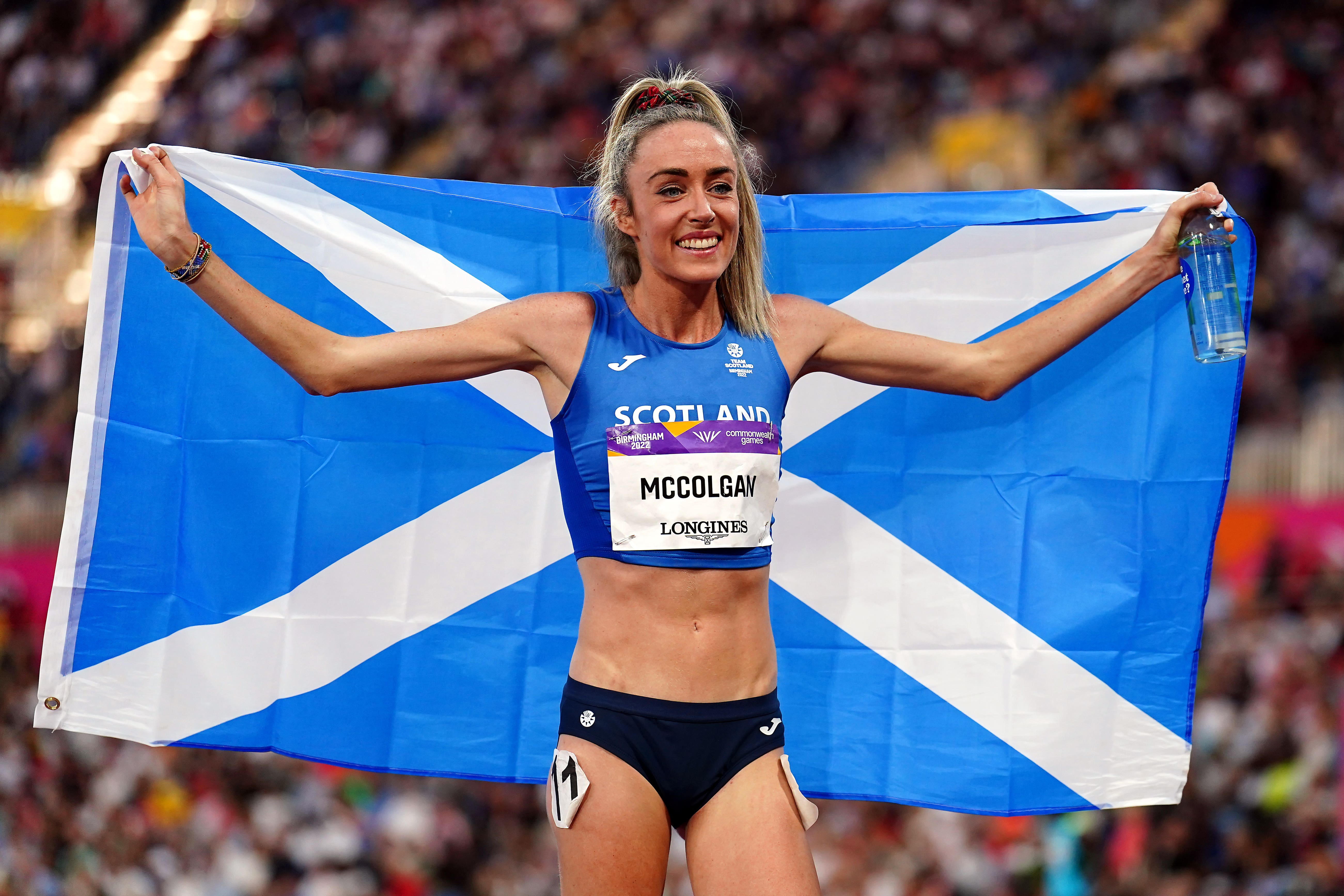Eilish McColgan wants more research into how periods affect athletic performance
The Scottish athlete has enjoyed a stellar 2022 season, winning four major medals.

Your support helps us to tell the story
From reproductive rights to climate change to Big Tech, The Independent is on the ground when the story is developing. Whether it's investigating the financials of Elon Musk's pro-Trump PAC or producing our latest documentary, 'The A Word', which shines a light on the American women fighting for reproductive rights, we know how important it is to parse out the facts from the messaging.
At such a critical moment in US history, we need reporters on the ground. Your donation allows us to keep sending journalists to speak to both sides of the story.
The Independent is trusted by Americans across the entire political spectrum. And unlike many other quality news outlets, we choose not to lock Americans out of our reporting and analysis with paywalls. We believe quality journalism should be available to everyone, paid for by those who can afford it.
Your support makes all the difference.Commonwealth champion Eilish McColgan does not believe sufficient research is being done into women’s health to support female athletes in reaching their peak physical fitness.
The 31-year-old Dundee athlete won 10,000 metres gold and 5,000m silver in Birmingham in August before going on to win two more medals at the European Championships in Munich.
McColgan also mentors young female athletes, whom she hopes will have a better and stigma-free understanding of their bodies, particularly when it comes to how menstruation affects performance.
“In all honesty I think there’s still a huge amount to be done,” McColgan told the PA news agency.
“I still don’t really have the answers as to how to calm my symptoms down every month, or what’s a healthy way to do it, rather than a lot of athletes just go on the pill and it stops their cycle entirely.
“We’re sort of realising that is not the healthiest way for a female to operate. I definitely think there’s still a lot of question marks regarding the solutions we have. There’s no doubt it’s getting better for sure, we have options now with different coils and patches and IUDs (intrauterine devices) and instruments.
“There’s so much more out there, but it’s just trying to find that information I think is still lacking ever so slightly. I think it’s interesting that a lot of athletes are speaking up and (the general public) is seeing that they suffer from these issues. I think they believed athletes were sort of immune to it.”
The conversation around menstruation has certainly opened up over the past few years, with increasingly high-profile athletes speaking out about how their periods affect performance.
McColgan won 10,000m silver and 5,000m bronze at the European Championships, the same event where her Great Britain team-mate Dina-Asher Smith candidly confessed that the calf cramps she felt cost her 100m gold were a result of her period.
World tennis number one Iga Swiatek also pointed to PMS as a factor in her WTA Finals loss to Maria Sakkari last season.
McColgan said: “People can relate to that and think, actually, yes, it wasn’t just because you can’t be bothered, it’s because (someone) is in a lot of pain but still stood on the start line in her crop top and pants and still gave it the best effort she could.”
McColgan has rarely been forced to drop out of competitions but blamed her period for two of those instances. Once, when she brought up the subject on Twitter, a man suggested simply not competing at that time of the month and scheduling another race.
“As if I could simply call up the Olympic Games and ask them to move my event,” McColgan retorted in a BBC essay.
It has been an extraordinary year for McColgan, who started 2022 by shattering Paula Radcliffe’s 21-year-old British half marathon record at Ras Al Khaimah in February in only her second competitive attempt at the distance
McCoglan’s Commonwealth gold was not just special for its colour, nor even because it was her first major title. The emotional first-place finish for Team Scotland also echoed mother Liz’s two Commonwealth victories in the same event in 1986 and 1990.
Her winning run, taking the lead from Kenya’s Irine Cheptai with just 250m remaining, also set a Commonwealth record of 30 minutes and 48.60 seconds.
“To be honest I don’t think it will be topped in the rest of my career,” said McColgan. “I really think that is the moment. It also still feels a little surreal. I don’t think it’s quite sunk in.”
The banner year has culminated in McColgan being named one of six finalists for BT Sport’s Action Woman Awards alongside UFC fighter Molly McCann, England football star Beth Mead, Olympic diver and fellow Commonwealth champion Andrea Spendolini-Sirieix, multiple Paralympic champion Hannah Cockroft and compatriot Eve Muirhead, who skipped GB to Olympic curling gold before announcing her retirement.
McColgan, however, has no intention of hanging up her spikes. In April, she plans to run her first London Marathon — an event mum Liz also won in 1996.
“When I was younger I would think a 30-year-old was ancient,” admitted McColgan. “Now I’m in my 30s I’m going to be stronger than ever. I’m getting faster and I just feel better in myself.”
Watch the 2022 BT Sport Action Woman of the Year Awards on Wednesday 16th November, live on BT Sport as well as Facebook and Youtube. For more info, visit http://btsport.com/actionwoman